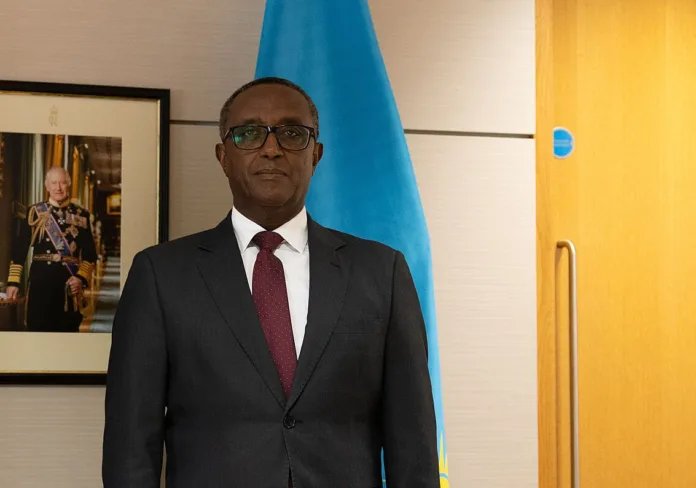LGBTQ+ groups challenge the UK’s positive depiction of Rwanda, citing safety concerns for asylum seekers
The UK government faces criticism from LGBTQ+ advocates over its revised travel guidelines for Rwanda, asserting the country’s tolerance towards diverse sexual orientations. This controversial stance surfaces amidst ongoing debate over the UK’s decision to deport certain asylum seekers to Rwanda, a policy widely contested for its potential human rights implications.
Last month, the Foreign, Commonwealth and Development Office (FCDO) altered its travel advice to portray Rwanda as non-discriminatory towards sexual orientations. This update starkly contrasts prior warnings that highlighted potential discrimination and abuse faced by LGBTQ+ travellers, including from local authorities.
Embed from Getty ImagesOpposition figures and refugee advocates are sceptical, suggesting the adjustment aims to justify the UK’s asylum policy rather than reflect genuine changes in Rwanda’s treatment of LGBTQ+ individuals. Critics point out that no new legislation has been enacted in Rwanda to enhance protections for the LGBTQ+ community, casting doubt on the FCDO’s reassurances.
Sebastian Rocca, CEO of Micro Rainbow, voices a stark warning, noting the palpable fear among LGBTQ+ asylum seekers about being resettled in Rwanda. “The notion that LGBTQI individuals could find safety in a nation without explicit legal protections is not only illogical but dangerously misleading,” Rocca argues.
Echoing this concern, Alistair Carmichael, the Scottish Liberal Democrat’s home affairs spokesman, accuses the UK government of manipulating the narrative to support its policies without regard for the actual risks involved. “The updated travel advice may serve to mask the real dangers that LGBTQ+ travellers could face in Rwanda,” Carmichael suggests, “potentially placing these individuals in grave jeopardy.”
The UK’s alignment of its travel advice with the international treaty with Rwanda has been criticized by Usman Aslam, a senior immigration lawyer. Aslam emphasizes the disconnect between the legal framework and its implementation on the ground. “Acknowledging that locals and even law enforcement may harbour prejudices against same-sex relationships highlights the ongoing risks for the LGBTQ+ community in Rwanda,” he states.
In response to these criticisms, a spokesperson for the UK Government maintains that the updated travel advice reflects Rwanda’s constitutional commitments to non-discrimination. “Our travel guidelines now align with Rwanda’s anti-discrimination policies as outlined in our international agreements, asserting Rwanda as a safe destination for all travellers, including those from the LGBTQ+ community,” the spokesperson asserts.
Analysis
Political Perspective: The UK’s policy to deport asylum seekers to Rwanda is indicative of a broader political strategy aimed at deterring irregular immigration. By promoting Rwanda as a safe haven, the government seeks to mitigate public and international backlash against its asylum policies. However, this approach may risk oversimplifying complex human rights dynamics in Rwanda, potentially leading to policy decisions that could harm vulnerable groups.
Sociological Perspective: From a sociological angle, the controversy highlights the challenges faced by marginalized communities in asserting their rights in international contexts. The scepticism towards the UK’s revised travel advice reflects deeper issues of trust and representation for LGBTQ+ individuals, both within national borders and globally.
Economic Perspective: Economically, the decision to partner with Rwanda could be seen as an attempt to outsource the UK’s asylum processing in a cost-effective manner. Yet, this fiscal pragmatism must be balanced against the potential costs of failing to protect asylum seekers’ rights, which could lead to international censure and financial penalties.
Local Perspective: For Rwandans, especially those within the LGBTQ+ community, the international spotlight might pressure local authorities to improve protections and community relations. However, without genuine legal reforms, such international scrutiny could also provoke backlash or increased discrimination from conservative factions.
Gender and Minority Perspectives: The policy and its justifications must be analyzed through the lens of gender and minority rights, recognizing that LGBTQ+ individuals often face intersecting forms of discrimination. Effective advocacy and policy-making should consider these intersections to ensure that all asylum seekers, regardless of gender or sexual orientation, receive equitable protection.
